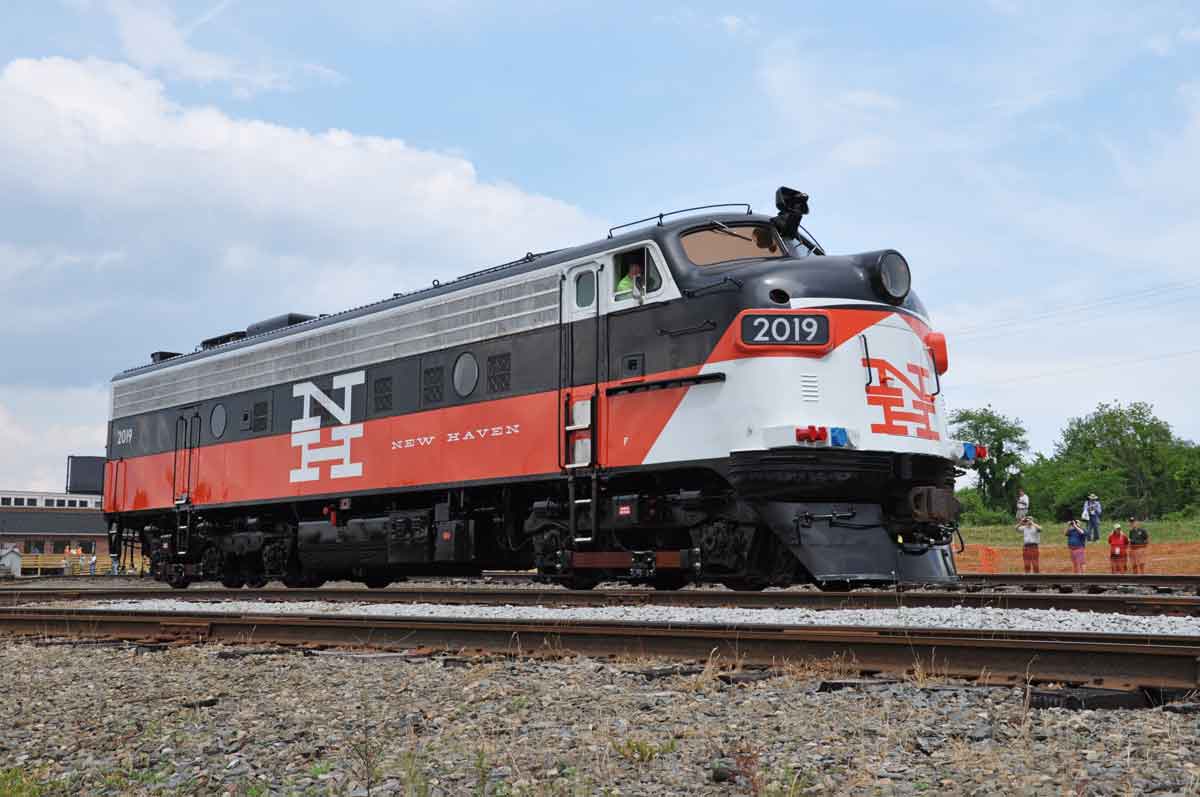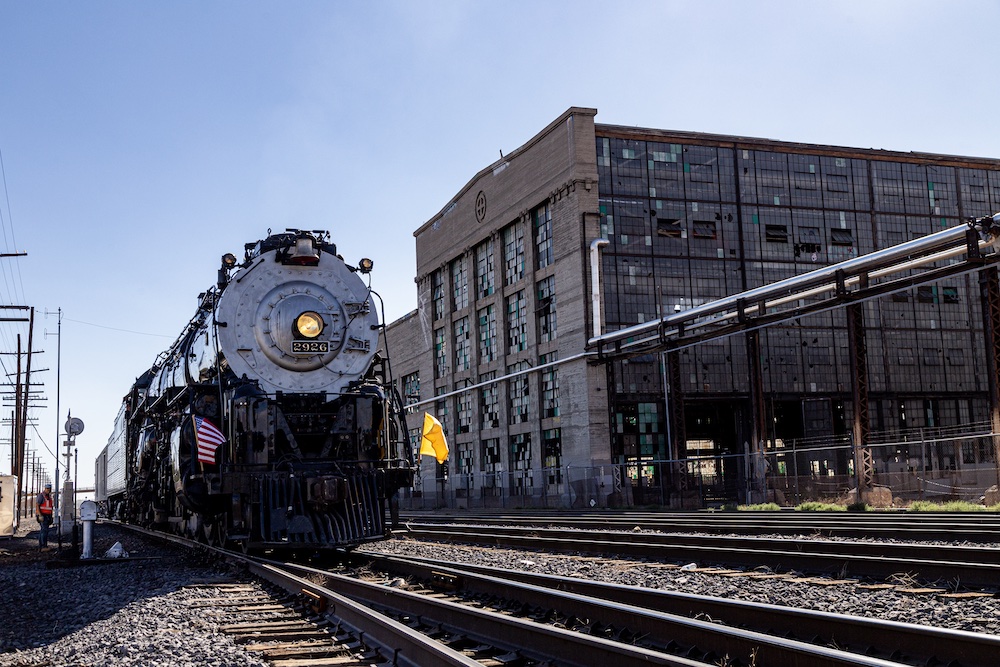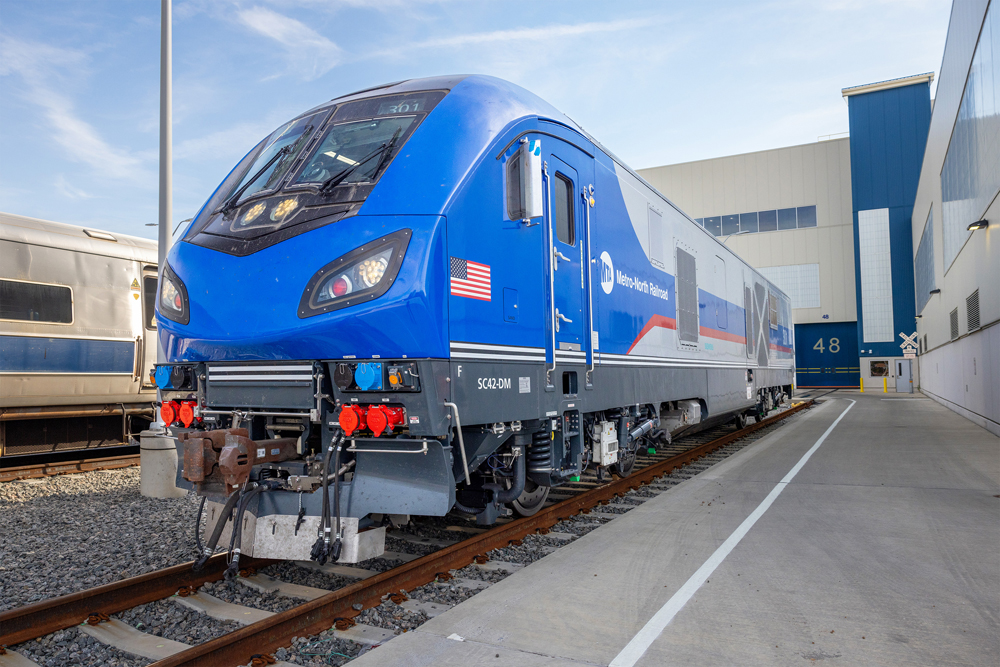The line is seen as a way to give petroleum products a way to reach Alaskan terminals, and for containerized shipments to avoid congestion at U.S. and Canadian ports farther south.
State Sen. Shelley Hughes, R-Palmer, said in a release the rail link “would provide a huge boost to our state’s economy. Access to the North American railroad system would mean faster and more efficient shipping of goods, lowering the cost of living for all Alaskans.”
As reported by Trains, two separate groups are floating proposals for privately funded rail lines from Alaska to western Canada and the Lower 48 states. The estimated cost of the line is $17 billion; the resolution notes the state would not be on the hook for a line connecting the state to Alberta.
The resolution asks that a presidential permit for a border crossing be issued “as soon as practicable to reduce any regulatory risk for the project.”
SJR 11, approved unanimously by the Senate, has been sent to the Alaska House for consideration.














Re: Private sector building a railroad? Yeah, right. There’s no private sector any more. It has been subsumed into our Bolshevik government.
If it wasn’t for our Bolshevik government there wouldn’t be railroads. Government, ALWAYS has been and always will be a means for the smart-n-savvy people to get someone-else’s money to use for their own gain.
Government exist to move loot to the top, which is WHY the smart-n-savvy people like government so much.
Of course, the children actually believe in moral, so this concept is lost on children.
@David Haisell: Battle of Quebec (1775) Battle of Valcour Bay (1776) War if 1812 (1812), Niagara Campaign (1814).
US and Canada didn’t get along for awhile after that. It finally became relatively peaceful after a group of Confederates gathered in Canada, crossed the border during the Civil War in the Battle of St Albans. (Essentially a bank robbery) The Union was very suspicious of the Canadians because they were aligned with the British who were supplying materiel to the CSA.
The Canadian government was so disgusted with the St Albans raiders, after they crossed back over, they were all arrested and kicked out of the country. The Union took no chances and fortified Fort Montgomery on Lake Champlain.
After the War of 1812, the Canadians built 5 new forts to keep the Americans out for good. No significant aggression took place after that and after several border treaties were signed, little hostilities since unless you count all the bar fights when the Alcan Highway was being built between American highway workers and local lumbermen.
@Greg Warren: You want Canada? Come and get it. You guys have tried twice; how did that go?
@John Privara: Since when did the government buy up Norfolk Southern, CSX, Union Pacific, and BNSF? Pretty sure CN and CP are still privately owned up here too.
Can you say “Boondoggle “!
Just Annex Western Canada!
A privately funded effort would probably want to get a licenses from both the US and Canadian government so they can make the requisite appeals for financing.
In the US it would probably use a tool like Florida’s PAB’s (private activity bonds) or an application to the FRA RRIF which is a government program (not a subsidy) that allows railroads to syndicate their financing efforts with various financial institutions. Since the FRA would have required a business plan and a environmental impact report before signing off.
As I stated in the last Trains NewsWire article on this, I think its admirable they want to attempt this and from a pure manifest destiny view would be great to connect Alaska to the lower 48.
But from a business perspective, it just doesn’t make a great deal of sense.
Shippers would rather wait at a crowded west coast port than pay the extra dollars required to get product south by rail. And the cost to get product over rail from Alaska to the Lower 48 would be way more expensive than shipping it on a barge from Anchorage or Valdez.
The *only* way a line like this would make it is if they find rare earth’s somewhere along the ROW that can be extracted economically. That is the only reason the WhitePass narrow gauge got built (too late it seems) and only survives today as a tourist activity.
There are other engineering challenges this route will encounter, just as the builders of the Alcan Highway faced.
Heaving permafrost in the spring, snow removal in the passes during winter, snowslides, landslides, earthquakes. All have to be considered in designing, engineering and building this route. This is not going to be like the UP in the race to Promontory Point across the plains. This will be more like the Central Pacific coming from the west with 10 times the difficulties.
Private sector building a railroad? Yeah, right. There’s no private sector any more. It has been subsumed into our Bolshevik government. Here in Wisconsin, tell me what’s “private sector” about taxpayers subsidizing Foxconn not just with infrastructure improvements but actually cutting them a check for some billions. Closer to home, here in the Town of Brookfield (Waukesha County), home to both my family and to TRAINS MAGAZINE, taxpayers subsidized the building of a mall. What started in the central city poverty neighborhoods,where nothing could possibly get built without a substantial subsidy, is now de riguer out here in the comfortable, higher income suburbs.
Gerald McFarlane: I don’t think that you bothered to read by comment. I said nothing about the government. Who would be on the hook when this private “venture” fails as it most surely will? The government. I only hinted at that but maybe I should have been more explicit. And the remainder of my “fake news” comment concerning rusting ship bottoms etc. was taken from Maynard Ross’s comment two below me which you OBVIOUSLY failed to read. But for once I agree with you. It was fake news that Mr. Ross must of thought up. I remember that the Exxon Valdez accident was the result of faulty navigation not rust or fog. All tankers in use today have double bottoms which even if there was rust would prevent a leak and modern navigation equipment would make a collision in the fog an unlikely occurrence. Maybe you should be the one to read these articles and comments more closely.
Robert McGuire…did you even read the story, or the previous one about it? Apparently not, because, as our very own Trains News Wire reported(and is repeated in this story): “As reported by Trains, two separate groups are floating proposals for privately funded rail lines from Alaska to western Canada and the Lower 48 states.” Notice how it says PRIVATELY FUNDED proposals…that usually means without government money(aka tax dollars). Also, Alberta is already on board and so is the Yukon Territories(not sure if BC or the Northern Territories are even needed). The rest of your comment is just fake news of non-existent accidents…the only significant accident that spilled oil was the Exxon Valdez, and that had nothing to do with rust or fog.
This is just a plain stupid idea that has little to no chance of happening. $17 billion is just for starters. Wait until the real costs start to accrue. And what does the phrase “the resolution notes the state would not be on the hook for a line connecting the state to Alberta” mean? Who would be on the hook? This would make the shipping of products more expensive as shipping by water is almost always cheaper than shipping by train or truck. Mr Ross’s comment that it would be safer because the bottoms on ships rust out and spill their loads into the rivers and streams. I wonder if he could point to an example of this happening. Also, I wonder how many recent ship collisions have occurred in the fogs off the West Coast. I suppose there has never been a train derailment where the oil products carried or from the locomotives have seeped into rivers and streams. I suppose the Alaskan Senate has received the permission of the relevant Canadian authorities and Indian tribes for crossing their borders. When this reaches Trump’s desk he should just toss it in the waste basket. But then again he seldom listens to me.
What’s the status of the rail route over/under the Bering Strait? https://en.wikipedia.org/wiki/Bering_Strait_crossing
A connection with the rest of the US & Canadian rail system would be most beneficial to all citizens of all the countries up and down the west coast, even Mexico and South America. since rail lines already connect all these countries anyways. Oil & coal trains as well as general merchandise trains already run up and down these rail lines. No more sea going ships that dump oil into the rivers & streams when the bottoms rust thru or they collide with other ships in the fogs that are prevalent up & down the coasts of all these nations. As for global warming, don’t even get me started, I believe that there is no global warming, just global cooling. Seattle never used to get snowed on when I lived there as a little kid but ever since I came home from the Navy in 1970 it has been snowed on a little bit each and every year and the snows seem to be getting heavier and lasting a lot longer than they used too.
You’re right, Roger. With global warming, the Trans-Arctic would be a bad idea.
If this line gets built, can the California – Hawaii high-speed line be far behind?